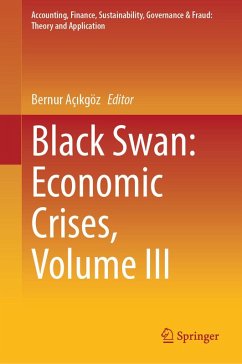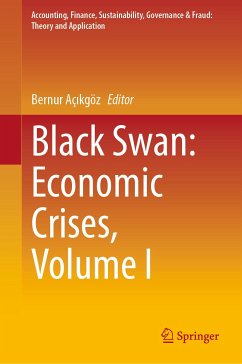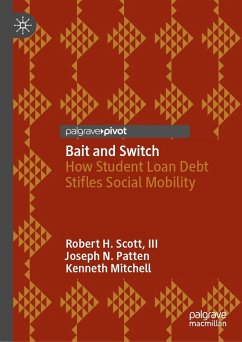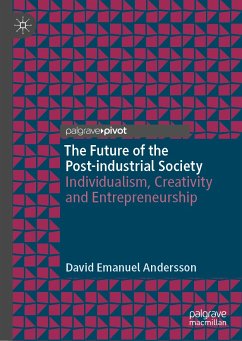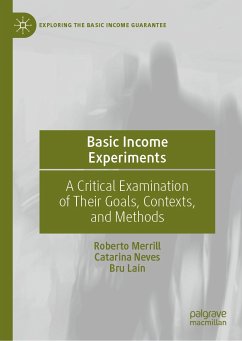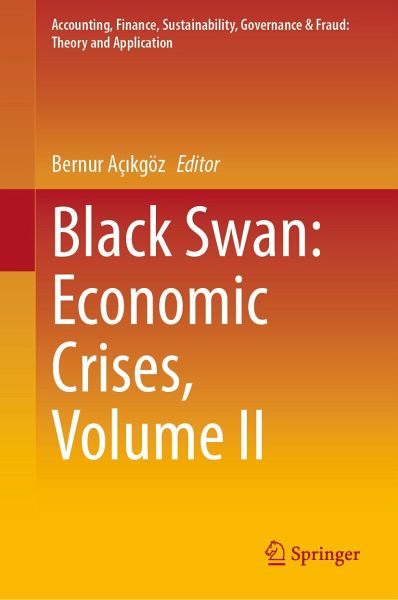
Black Swan: Economic Crises, Volume II (eBook, PDF)
Versandkostenfrei!
Sofort per Download lieferbar
128,95 €
inkl. MwSt.
Weitere Ausgaben:

PAYBACK Punkte
64 °P sammeln!
This book continues the discussion from Volume I on economic, fiscal, and financial crises in world history that have had a great impact on the entire world and the fiscal measures taken by governments to combat each crisis. Such events are often described as black swans, a concept introduced by Economist and Risk Analyst Nassim Nicholas Taleb in the book Fooled By Randomness in 2001, in reference to events that were thought to be impossible but had a huge impact when they did happen.The beginning of this book notes that crises are catastrophic periods when the consequences of economic mistake...
This book continues the discussion from Volume I on economic, fiscal, and financial crises in world history that have had a great impact on the entire world and the fiscal measures taken by governments to combat each crisis. Such events are often described as black swans, a concept introduced by Economist and Risk Analyst Nassim Nicholas Taleb in the book Fooled By Randomness in 2001, in reference to events that were thought to be impossible but had a huge impact when they did happen.
The beginning of this book notes that crises are catastrophic periods when the consequences of economic mistakes made by governments are reflected to the public. Although economic crises are seen as opportunities in some cases, they have created a burden for the people. Some economic crises even triggered the world war. A recent example, Adolf Hitler, was seen as a hope of salvation in Germany due to the Great Depression and was brought to power.
The twentieth century, whentwo great world wars took place on the stage of history, is the witness of major economic crises as well as wars. These crises have caused social and economic paradigm shifts to be experienced much faster and more effectively than the previous centuries. The transformation of the demand-oriented economic understanding created by the Great Depression in 1929 into an interventionist social state understanding, especially after the World War Two, increased the intervention of states in the socioeconomic field. In this period, the reconstruction of the countries, the development of social welfare services, the assurance of human rights, the acceleration of industrialization and development, and the economic growth and income growth of the countries resulted in the golden age enjoyed by the societies of the period.
The interventionist social state, seen as a prescription and opportunity in the past crisis, was one of the cornerstones of the crisis in the last quarter of thecentury in the 1970s. Against interventionism, with the rise of neo-liberalism, financial liberalization, information society, and technological discoveries, globalization has become the new phenomenon of the age. This book examines in detail the causes, occurrences, and results of the twentieth-century crises.
Dieser Download kann aus rechtlichen Gründen nur mit Rechnungsadresse in A, B, BG, CY, CZ, D, DK, EW, E, FIN, F, GR, HR, H, IRL, I, LT, L, LR, M, NL, PL, P, R, S, SLO, SK ausgeliefert werden.



